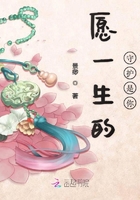There were indeed two or three capital executions for heresy.
Gardiner and Bonner, who opposed the reformation with unparalleled bitterness were only deprived of their sees and sent to the Tower.
The execution of Somerset was the work of politicians, of great noblemen jealous of his ascendency. It does not belong to the reformation, nor do the executions of a few other noblemen.
Cranmer himself was a statesman rather than a preacher. He left but few sermons, and these commonplace, without learning, or wit, or zeal,--ordinary exhortations to a virtuous life. The chief thing, outside of the reforms I have mentioned, was the publication of a few homilies for the use of the clergy,--too ignorant to write sermons,--which homilies were practical and orthodox, but containing nothing to stir up an ardent religious life. The Bible was also given a greater scope; everybody could read it if he wished. Public prayer was restored to the people in a language which they could understand, and a few preachers arose who appealed to conscience and reason,--like Latimer and Ridley, and Hooper and Taylor; but most of them were formal and cold. There must have been great religious apathy, or else these reforms would have excited more opposition on the part of the clergy, who generally acquiesced in the changes. But the Reformation thus far was official; it was not popular. It repressed vice and superstition, but kindled no great enthusiasm. It was necessary for the English reformers and sincere Protestants to go through a great trial; to be persecuted, to submit to martyrdom for the sake of their opinions. The school of heroes and saints has ever been among blazing fires and scaffolds. It was martyrdom which first gave form and power to early Christianity. The first chapter in the history of the early Church is the torments of the martyrs. The English Reformation had no great dignity or life until the funeral pyres were lighted. Men had placidly accepted new opinions, and had Bibles to instruct them; but it was to be seen how far they would make sacrifices to maintain them.
This test was afforded by the accession of Mary, daughter of Catharine the Spaniard,--an affectionate and kind-hearted woman enough in ordinary times, but a fiend of bigotry, like Catherine de' Medicis, when called upon to suppress the Reformation, although on her accession she declared that she would force no man's conscience. But the first thing she does is to restore the popish bishops,--for so they were called then by historians; and the next thing she does is to restore the Mass, and the third to shut up Cranmer and Latimer in the Tower, attaint and execute them, with sundry others like Ridley and Hooper, as well as those great nobles who favored the claims of the Lady Jane Grey and the religious reforms of Edward VI. She reconciles herself with Rome, and accepts its legate at her court; she receives Spanish spies and Jesuit confessors; she marries the son of Charles V., afterwards Philip II.; she executes the Lady Jane Grey; she keeps the strictest watch on the Princess Elizabeth, who learns in her retirement the art of dissimulation and lying; she forms an alliance with Spain; she makes Cardinal Pole Archbishop of Canterbury; she gives almost unlimited power to Gardiner and Bonner, who begin a series of diabolical persecutions, burning such people as John Rogers, Sanders, Doctor Taylor of Hadley, William Hunter, and Stephen Harwood, ferreting out all suspected of heresy, and confining them in the foulest jails,--burning even little children. Mary even takes measures to introduce the Inquisition and restore the monasteries. Everywhere are scaffolds and burnings. In three years nearly three hundred people were burned alive, often with green wood,--a small number compared with those who were executed and assassinated in France, about this time, by Catherine de' Medicis, the Guises, and Charles IX.
In those dreadful persecutions which began with the accession of Mary, it was impossible that Cranmer should escape. In spite of his dignity, rank, age, and services, he could hope for no favor or indulgence from that morose woman in whose sapless bosom no compassion for the Protestants ever found admission, and still less from those cruel, mercenary, bigoted prelates whom she selected for her ministers. It was not customary in that age for the Churchmen to spare heretics, whether high or low. Would it forgive him who had overturned the consecrated altars, displaced the ritual of a thousand years, and revolted from the authority of the supreme head of the Christian world? Would Mary suffer him to pass unpunished who had displaced her mother from the nuptial bed, and pronounced her own birth to be stained with an ignominious blot, and who had exalted a rival to the throne? And Gardiner and Bonner, too, those bigoted prelates and ministers who would have sent to the flames an unoffending woman if she denied the authority of the Pope, were not the men to suffer him to escape who had not only overturned the papal power in England, but had deprived them of their sees and sent them to the Tower. No matter how decent the forms of law or respectful the agents of the crown, Cranmer had not the shadow of a hope; and hence he was certainly weak to say the least, to trust to any deceitful promises made to him. What his enemies were bent upon was his recantation, as preliminary to his execution; and he should have been firm, both for his cause, and because his martyrdom was sure. In an evil hour he listened to the voice of the seducer. Both life and dignities were promised if he would recant. "Confounded, heart-broken, old," the love of life and the fear of death were stronger for a time than the power of conscience or dignity of character. Six several times was he induced to recant the doctrines he had preached, and profess an allegiance which could only be a solemn mockery.















